Kingdom animalia
Phylum Chordata
Class birds
Order psittaciformes
Family psittacidae
Macaw is the common name given to some birds belonging to the Psittacidae family. Such animals have short feet, a broad and robust head, and a curved and resistant beak. This last feature allows them to break and peel seeds easily, and to pierce trunks in search of larvae – acts aided by the well-developed tongue.
Macaws live in small groups or only in pairs, and are usually seen in treetops. They have a characteristic vocalization, used in their social interactions. They can imitate sounds easily.
Such animals are loyal to their partners. Although both feed and care for the young, the female is responsible for assisting the eggs. Macaws can live for about 70 years.
Macaws are classified into six genera. See below what they are and learn about the species that can be found in Brazil, along with their status of conservation, according to the International Union for the Conservation of Nature and Natural Resources (IUCN):
genus Ara. Twelve species, four found in Brazil:
Ara ararauna (canindé macaw) – minimal risk of extinction, least concern, LC.
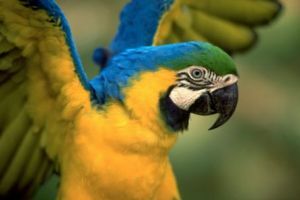
Ara chloropterus (great macaw or ararapiranga) – minimal risk of extinction, least concern, LC.
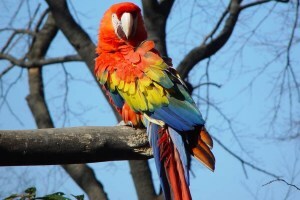
macao (red macaw or macaw) – minimal risk of extinction, least concern, LC.

ara severus, or severe ara (maracanã-guaçu) – minimal risk of extinction, least concern, LC.
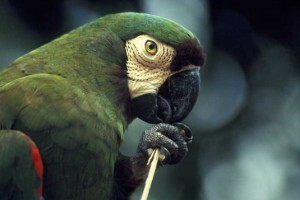
Genus Anodorhynchus. Three species, all found in Brazil:
Anodorhynchus glaucus (Small Hyacinth Macaw or Hyacinth Macaw) – critically endangered, critically endangered, CR.

Anodorhynchus hyacinthinus (Haring Macaw or Hyacinth Macaw) – Endangered, endangered, EM.
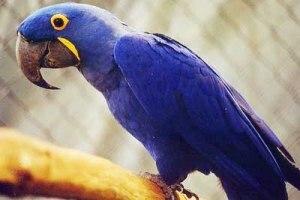
Anodorhynchus leari (Lear's Macaw) – Endangered, endangered, EM.

Cyanopsitta genus. A single species, found in Brazil:
Cyanopsitta spixii (Spix's Macaw) – critically endangered, critically endangered, CR.

Genus Primolius. Three species, all found in Brazil:
Primolius auricollis (maracanã-de-colar) – minimal risk of extinction, least concern, LC.
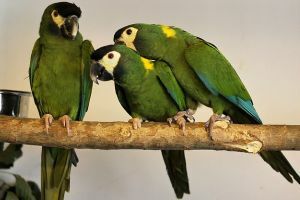
Primolius Couloni (blue-headed maracanã) – vulnerable, vulnerable, VU.

Primolius Maracana (maracanã-verdadeira) – almost threatened, near threatened, NT.
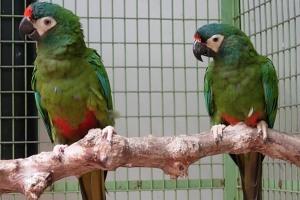
Orthopsittaca genus. A single species, found in Brazil:
Orthopsittaca manilata (yellow-faced maracanã or buriti maracanã) – minimal risk of extinction, least concern, LC.

Diopsittaca genus. A single species, which can be found in Brazil:
Diopsittaca nobilis (small maracanã) – minimal risk of extinction, least concern, LC.
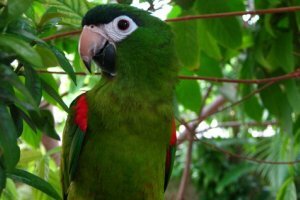
CURIOSITY:
The Hyacinth Macaw, Anodorhynchus hyacinthinus, is the largest parrot in the world, reaching a meter in length and a kilo and a half in mass.
By Mariana Araguaia
Graduated in Biology
Brazil School Team
Vertebrates -Animals -Brazil School

